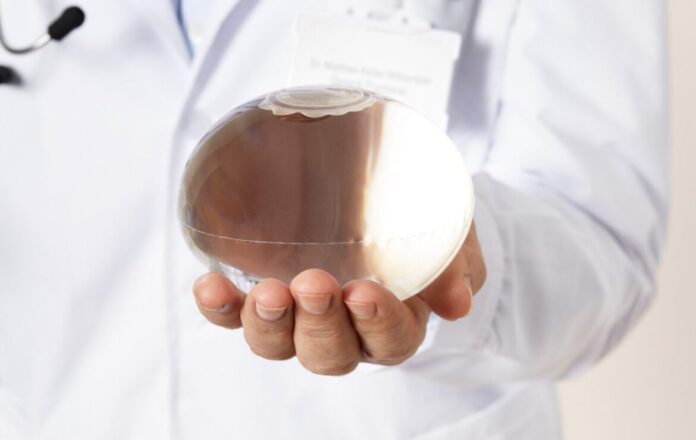When it comes to managing obesity and taking control of one’s eating habits, one of the more innovative non-surgical options is the gastric balloon. This temporary, minimally invasive device is placed inside the stomach to help individuals lose weight by promoting early satiety. But a question that often arises is: how does a gastric balloon affect hunger levels? Understanding the physiological and behavioral effects of the gastric balloon on appetite can provide insight into why many individuals experience significant weight loss during treatment. This method is increasingly popular among individuals seeking an effective weight loss solution, especially in metropolitan wellness centers, such as for a Gastric Balloon in Dubai.
What Is a Gastric Balloon?
A gastric balloon, also known as an intragastric balloon, is a soft, expandable device made of silicone that is inserted into the stomach through the mouth using an endoscope. Once inside, the balloon is inflated with sterile saline or gas, depending on the balloon type, to occupy space in the stomach.
How Gastric Balloon Influences Hunger Mechanisms
1. Physical Restriction
One of the most direct ways the gastric balloon impacts hunger is through physical restriction. When the balloon is filled, it occupies a significant portion of the stomach, usually about one-third. This volume displaces food space and stretches stomach walls, leading to:
- Earlier sensation of fullness (satiety)
- Slower gastric emptying
- Reduced food intake per meal
2. Hormonal Response
Stomach volume and stretch receptors influence the release of ghrelin, commonly known as the “hunger hormone.” After balloon insertion:
- Ghrelin production decreases
- Appetite signals to the brain are suppressed
- Cravings become more manageable
3. Behavioral and Psychological Impact
By changing the physical dynamics of eating, patients become more conscious of portion sizes. Gradually, they experience:
- Greater awareness of hunger vs. emotional eating
- Structured meal timings
- Improved relationship with food
Benefits of the Gastric Balloon on Appetite Regulation
The gastric balloon provides numerous advantages that contribute to hunger control:
1. Non-Surgical Solution
- No incisions or anatomical alterations
- Low risk of complications
2. Immediate Effect on Satiety
- Reduced appetite within days
- Encourages mindful eating patterns
3.Behavioral Change
- Sustainable habits built during the 6 months
- Often leads to a healthier lifestyle post-removal
4. Enhanced Professional Supervision
- Continuous monitoring by nutritionists and doctors
- Personalized coaching helps reinforce hunger management techniques
Role of the Stomach’s Mechanoreceptors
The stomach’s walls contain stretch-sensitive receptors. When these are activated by the balloon:
- They send signals via the vagus nerve to the brainstem
- This results in early satiety and delayed hunger return after meals
Gut-Brain Axis Modulation
By reducing ghrelin and increasing peptide hormones such as PYY and GLP-1, the gastric balloon modulates the gut-brain communication network, leading to:
- Decreased food-seeking behavior
- Improved impulse control around meals
Does Hunger Return After Balloon Removal?
Yes, but typically not in the same intensity. Here’s why:
- Patients are better trained to recognize true hunger.
- New portion sizes feel “normal” due to stomach conditioning.
- Continued nutritional counseling after removal mitigates relapse.
Benefits of Using a Gastric Balloon for Hunger Management
- Natural Appetite Suppression: No artificial chemicals or drugs.
- Real-Time Learning: Patients experience a daily “tutor” in hunger control.
- No Anatomical Changes: Temporary and reversible method.
- Multidisciplinary Guidance: Regular sessions with doctors, dietitians, and behavior coaches.
- Enhanced Motivation: Seeing real results from appetite reduction inspires further discipline.
Gastric Balloon vs. Diet Alone:
| Factor | Diet Alone | Gastric Balloon |
|---|---|---|
| Physical Stomach Control | None | Yes – Balloon fills stomach |
| Hormonal Effect | Minimal | Significant Ghrelin suppression |
| Portion Size Reduction | Self-managed | Naturally enforced |
| Hunger Satisfaction | Often incomplete | High |
| Relapse Likelihood | Moderate to high | Lower due to new habits |
FAQ’s:
1. Will I feel hungry all the time with a gastric balloon?
No. Most patients report a significant reduction in hunger soon after the balloon is inserted. Fullness is achieved with much smaller meals.
2. How long does it take for hunger levels to drop after the procedure?
Typically, within the first week, most individuals notice a drop in appetite as their body adapts to the gastric balloon.
3. Is it normal to feel no hunger at all with the balloon?
Yes, for some. The balloon can make you feel full even after a few bites, though it’s essential to eat enough nutrients to maintain health.
4. Can emotional eating still happen with a gastric balloon?
Yes, emotional eating is psychological. Doctors often integrate behavioral therapy and coaching to address emotional triggers.
5. After removal, will my hunger go back to how it was before?
Hunger may return slightly, but with the right habits developed during the balloon phase, most patients maintain a healthier appetite.
Conclusion:
The gastric balloon isn’t just about weight loss—it’s about resetting your relationship with food. Doctors use this tool not only to reduce stomach volume but to train the body and mind into a more sustainable and controlled eating rhythm. By altering hunger signals, enhancing satiety, and guiding patients through structured behavioral changes, this treatment becomes an effective part of long-term weight management.































